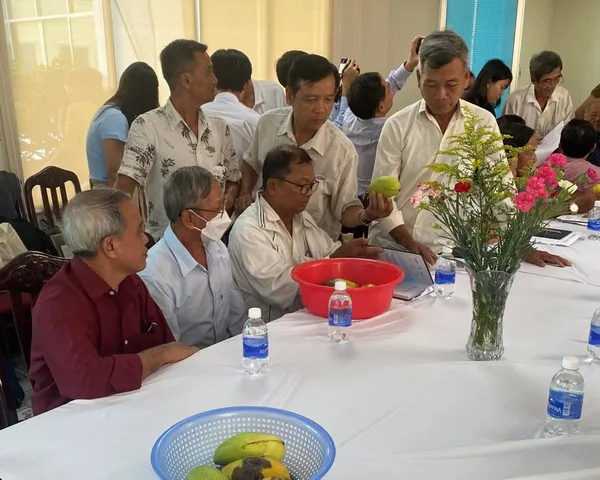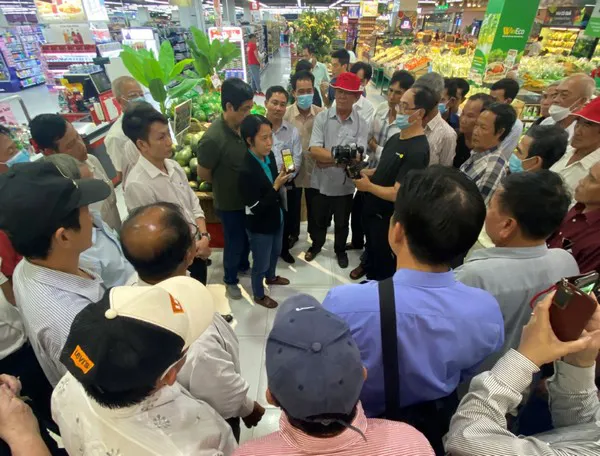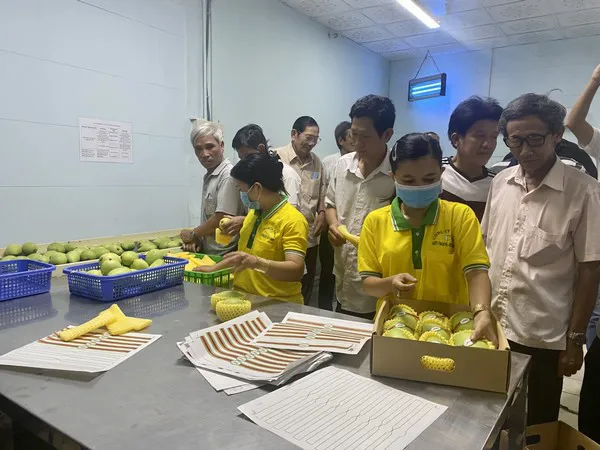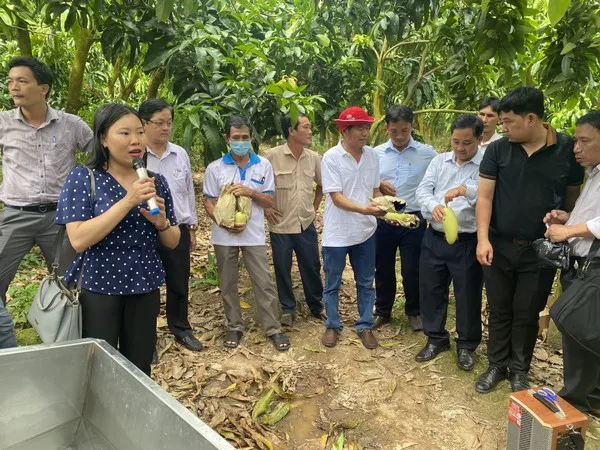Seventy smallholder mango farmers from the Mekong Delta region in Southern Vietnam were transported to Ho Chi Minh City to participate in Walking the Chain. The demand-focused activity walked the farmers through the steps in the produce trade path, giving them a better understanding of what’s required to successfully supply a modern retailer and validating the effects of certain trade interventions on domestic supply chains.
The innovative activity was designed and led by Associate Professor Robin E Roberts, from Griffith University, Queensland, Australia. Roberts organised the activity as part of a larger ACIAR funded project: Improving smallholder farer incomes through strategic market development in mango supply chains in Southern Vietnam.
“Mango farming is a significant contributor to Vietnam’s economy, with almost half the production originating in the Mekong Delta region,” Associate Professor Robin said.
“While both domestic and export trade markets are currently facing steady growth, the smallholder farmers in the region are yet to realise the benefits, with many still facing challenges such as small volume trading, process inefficiencies, and high production costs.”
Quality training workshop
The first step was a quality training workshop in Ho Chi Minh City. Farmers were given boxes of mangoes and asked which ones they would purchase for their families. They were encouraged to discuss why they found certain mangoes more appealing. The farmers then identified some of the fruit’s leading flaws and discussed how certain interventions would reduce those imperfections.

Understanding retail requirements
The second step was to engage with fresh produce managers from two modern grocery retailers. Farmers were taken to two supermarkets where they were able to observe their mangoes on display and participate in discussions about fruit quality, fruit safety, retail requirements, and trade marketing. The farmers gained a new understanding on concepts such as market access and consumer behaviour.

Packhouse training
For the third step, farmers were taken to a packhouse in their local Dong Thap province, where they were given a forum to discuss how premium quality produce should be prepared for trade. They were given demonstrations on interventions such as sap burn treatment and hot water treatment then observed their mangoes being graded, packaged, and prepared for distribution to retail outlets.

On-farm training
The final step was a visit to one of the mango farms that had participated in the project. Standing amongst the mango trees, the researchers provided the farmers with evidence-based, practical solutions to improve their trading outcomes. They gave a second demonstration on sap burn treatment and discussed factors that would improve their farm’s productivity, such as off-season flowering and disease and fertiliser management.

“While the project’s current focus is proof-of-concept for supply chain interventions, the Walking the Chain activity demonstrated the value in the practical application of its research, by connecting farmers with the end consumers of their produce,” said Associate Professor, Robin E Roberts.
For more information:
Shannon Stone
Griffith University
Tel: +617 3735 0019
shannon.stone@griffith.edu.au
